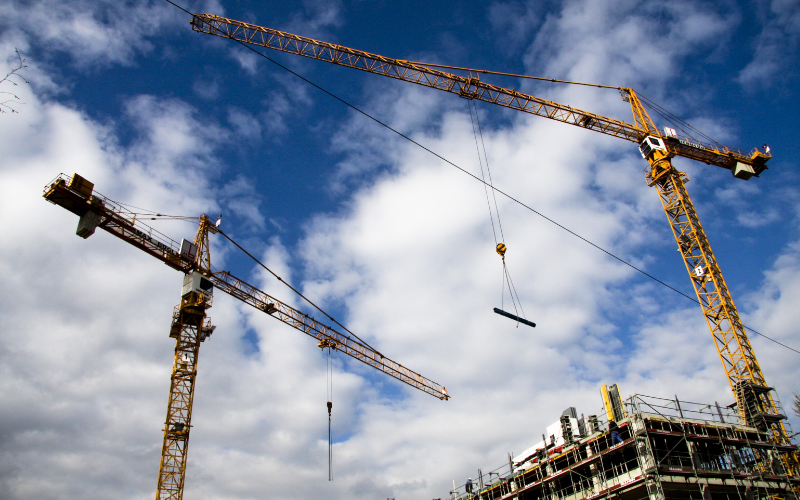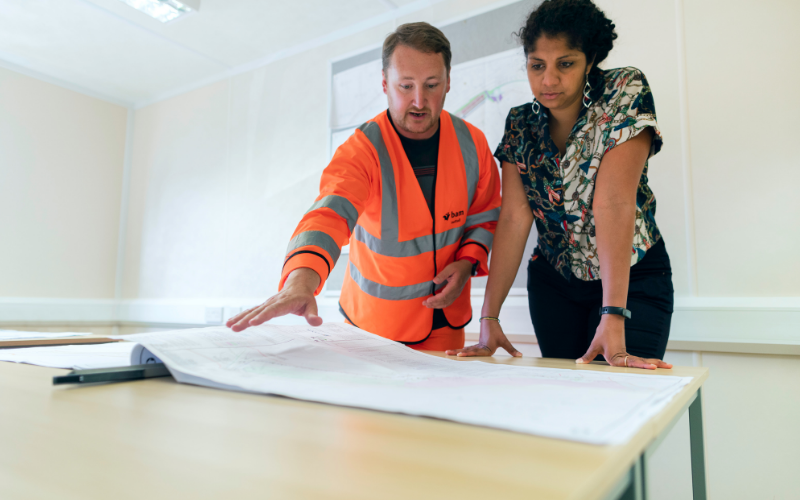Discover Your Inner Property Developer
What springs to mind when you hear the term ‘property developer’? Maybe you think of one of the large homebuilding firms knocking out those cookie-cutter show-homes in a new-build housing estate near you? Or perhaps it’s an image of some wealthy businessperson with an enviable lifestyle and oodles of disposable income, building smaller luxury projects?
If so, you’re certainly not alone. When most people think of property development, they don’t immediately see it as a business they could get into themselves. Buy-to-let? Well, that’s different; that’s vanilla. Everyone can do a buy-to-let. But development? That sounds like the Big Game – loads of money, but also loads of risk. Surely it’s not something for the inexperienced or faint of heart…

Truth is the world of ‘property development’ is a somewhat broader church than many might think. Sure, building a new housing estate may be beyond you, but could you manage a doer-upper, finding a tired two-up-two-down and giving it a new lease of life? Well, that might be a rather different kettle of fish. In fact, many buy-to-let landlords do this by default. And then there are ‘flips’; small projects where savvy DIYers and bargain hunters freshen up run-down homes and flip them on for a profit. That doesn’t sound too daunting, does it? Nothing like the same scale as your Barratts or Persimmons, yet interestingly it all falls into the category of ‘property development’.
The reality is that when it comes to being a property developer, the smaller end of the scale is a lot less scary than most people think. But here’s the thing; the absolute sweet spot in development is only one small step up from your flips and doer-uppers, and it’s an area that an increasing number of investors and landlords are moving into. Does it have a name? Welcome to the rather lucrative world of ‘small-scale property development’.
So what exactly do we mean when we say ‘small-scale’? Well, typically, you’d be building somewhere between 4 and 20 flats and planning to make a minimum 20% margin on what you sell them for. As an example, let’s assume you started small and converted a small shop, office, or commercial building into four flats which you then sold for £150,000 each, then you would expect to make a profit of £120,000. Not a bad return, and significantly more than you’d make from most flips. And if you did 12 flats based on the same numbers, you’d make £360,000, which, let’s face it, is probably a life-changing sum for most people. But in development terms, it’s relatively small beer. And where you’re building cheaper flats that cost only £75,000, then you’ll make half as much (or you could build twice as many) – you can do the math for wherever you live. Why is it so lucrative? Converting unloved commercial property into attractive residential units generates a significant premium, particularly in a market where so many owners of commercial properties are financially challenged. And in my 40 years’ experience, relatively few developers know how to convert properties well.

That’s all very interesting, but how much work is involved? Surely small-scale developments must be more difficult than flips if they make more profit? Well, here’s where, to a large extent, the magic happens. As we’re going up a notch in terms of scale compared to flips, so there is more money involved. And because there’s more money involved, we as developers can afford two things that make our lives considerably easier.
The first thing we can do is hire a main contractor. Where flippers and doer-uppers make do with a general builder and then employ many of the other trades directly, a small-scale developer uses a contractor who is responsible for all of the trades/subcontractors.
This makes life considerably easier since you only have one relationship to manage, and your contractor then coordinates all of the construction team.
Secondly, we can also afford to hire a Project Manager. The PM’s job is to oversee the development for the developer. Worried you might be out of your depth (or get exasperated), turning up on-site to manage architects and contractors? Well, your Project Manager will do this for you. A highly experienced set of eyes and ears managing things on site, looking after your interests, and reporting back to you regularly. What’s not to like? They can even bang heads together and make sure you’re not taken advantage of. You get to play the role of CEO instead of being a hands-on-newbie-project-manager.
And the benefits don’t stop there. Because you have a main contractor AND a Project Manager, you don’t need to oversee everything yourself. So it will take far less of your time than doing a smaller project where you frequently need to be on site. In fact, most small-scale developers oversee their projects in their spare time.
But surely it can’t be THAT easy? Well, consider the following statement: “Property developers don’t build houses”. On one level, it sounds ridiculous – surely ONLY property developers build houses? But, of course, from a practical point of view, it’s entirely true. Architects, contractors, structural engineers, and project managers build houses, along with a whole host of other sub-contractors and professionals. But the developer doesn’t lay a single brick or plumb in a single basin personally. You don’t even have to choose the curtains. You simply appoint a team of professionals to work for you that already has centuries of experience and has built thousands of homes between them. Property development has to be one of the most highly leveraged professions in the world.
So what skills do you need then, if so much of the work is outsourced? Well, your critical job as the developer is to create your own development ‘brand’, pull a team together, get the finance sorted, and then find profitable deals. And, of course, you need to be able to make decisions under advisement from your professional team since you’re the ultimate boss. It’s very much like the role of the CEO, and as such, you need to have solid organisational and management skills, as well as good interpersonal and communication skills. I would never tell anyone that property development is easy, but many people already have the generic core skills to be able to do it successfully. And to correct another popular misconception, you typically need to invest less of your own money in a development than you might think.

But there’s a reason why property developers take the lion’s share of the profit, while everyone else gets a fee, and primarily it’s all about risk. There’s no getting away from it – property development has many moving parts and is inherently risky. But, if you get yourself educated, it’s possible to de-risk the development process significantly. It’s the people who ‘jump in and go for it’ who tend to come a-cropper. I’ve certainly trained many developers who had learned the hard way that they didn’t know what they didn’t know. But then, if you’re about to embark on an enterprise that can generate life-changing sums of money, you might think that getting educated first could be quite a good idea.

Interestingly now is a great time to get into small-scale development. The government has just announced a whole range of Permitted Development Rights, making it possible to convert many commercial buildings without needing full planning permission. These rights come into effect from August 2021, so the timing couldn’t be better. In fact, of late the government seems to be giving good news to property developers, whereas the last five years have been relatively gloomy in that regard for landlords, to say the least.
So, if you’re thinking about property as a potential investment opportunity, career path, or spare-time enterprise, make sure you take a look at small-scale development before you decide. You may find that your timing is just about perfect – just make sure you learn how to do it properly first.